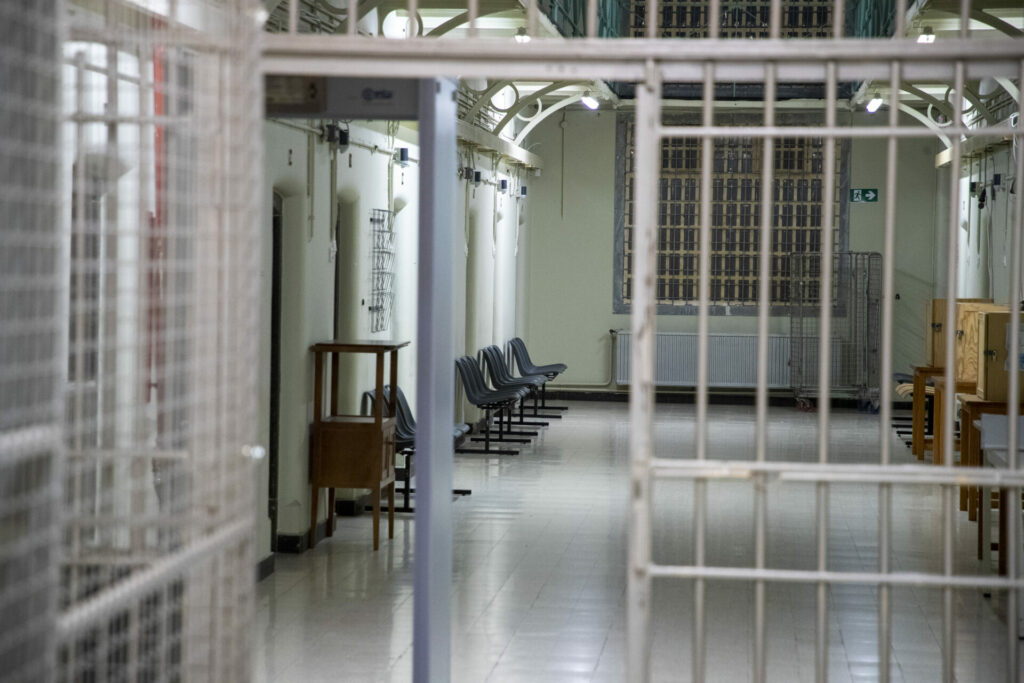Italy's experience in fighting organised crime is increasingly resonating in the Belgian city of Antwerp, which has become the new nerve centre of European drug trafficking in recent years.
As tens of billions of euros from drug trafficking are injected into the legal economy of European countries each year, investigators are increasingly looking to the approach Italy took against the mafia in the 1980s and reviving the strategy to combat drug trafficking in Belgium.
"Italy has become a superpower in the fight against the mafia and drug trafficking," magistrate Giovanni Tartaglia Polcini, member of the scientific committee of the Italian research institute Eurispes told Le Soir. "It is our historic duty to share this institutional and technical arsenal with all our international partners."
The "Falcone philosophy" (named after the Italian judge Giovanni Falcone, who made it his life's mission to fight the mafia) is based on a multi-level approach: a systemic and unitary vision of the fight against the mafia phenomenon. This fight is helped by the sharing of information between the various investigating judges, collaboration between the justice system and the customs and financial police, and an effective system of protection for those helping the police. Those caught in the trade should also face extremely severe prison sentences.
The mafia phenomenon
"Traditional international judicial cooperation does not allow us to change the paradigm," said Polcini. "To effectively combat transnational crime and drug trafficking, we are called upon to intensify technical assistance between European capitals."
The stakes are high and the urgency of an effective preventive and repressive response from the European authorities is increasingly critical. Mafias are evolving and getting stronger as criminal organisations have also understood the profit 'revolution' caused by the rise of synthetic drugs, whose production does not depend on the planting and harvesting cycles of coca and poppy leaves.
Additionally, the level of sophistication in the processes of laundering drug money is also increasing with the growing investment by drug cartels in the world of cryptocurrencies and the use of informal international payment and exchange systems.
"In Northern Europe, there has been an underestimation of the mafia phenomenon as if this scourge were only a problem in Italy," said Italian essayist and expert on transnational crime and professor at Queen's University in Canada, Antonio Nicaso. "This has given way to a belated awareness."
Turning a blind eye
The mafias operating in Belgium or the Netherlands should no longer be considered alien elements: they are highly structured criminal groups rooted in the territory infiltrating, corrupting and relying on a network of local accomplices, Nicaso asserts. Furthermore, these are organisations that flourish in these times of economic crisis and that have taken advantage of the upheavals linked to the Covid-19 pandemic.
"Since the 2008 financial crisis, drug money has become even more of a source of oxygen for the legal economy of our countries," said Nicaso. "Many banks – especially private ones with subsidiaries in off-shore countries – deliberately turn a blind eye to this dirty money. Judge Falcone was one of the first to confront this issue."
Polcini added that drug seizures and prison sentences alone are not enough: the priority should be to dismantle the financial empires behind the drug cartels, confiscate their illicit assets and reuse seized funds for social projects, as Italy does. This method "makes the fight against mafia organisations visible and financially 'strangles' the enemy."
Related News
- Belgium to increase use of plea bargains to combat organised crime
- Belgium looks to Italy in fight against organised crime
- Antwerp drug lord accused of continuing his empire from behind bars
Re-injecting the money made by cocaine trafficking, for example, into the legal economy is facilitated by the main European financial centres, such as the City of London, which are seen by various Italian magistrates as "states within a state" – fiscal paradises for "legalised fraud."
"The European Union is a pioneer in the field of anti-money laundering directives but these measures should be applied systematically and everywhere," said Polcini, adding that he is optimistic that the proven methodology developed by Italy can be implemented by other countries.

